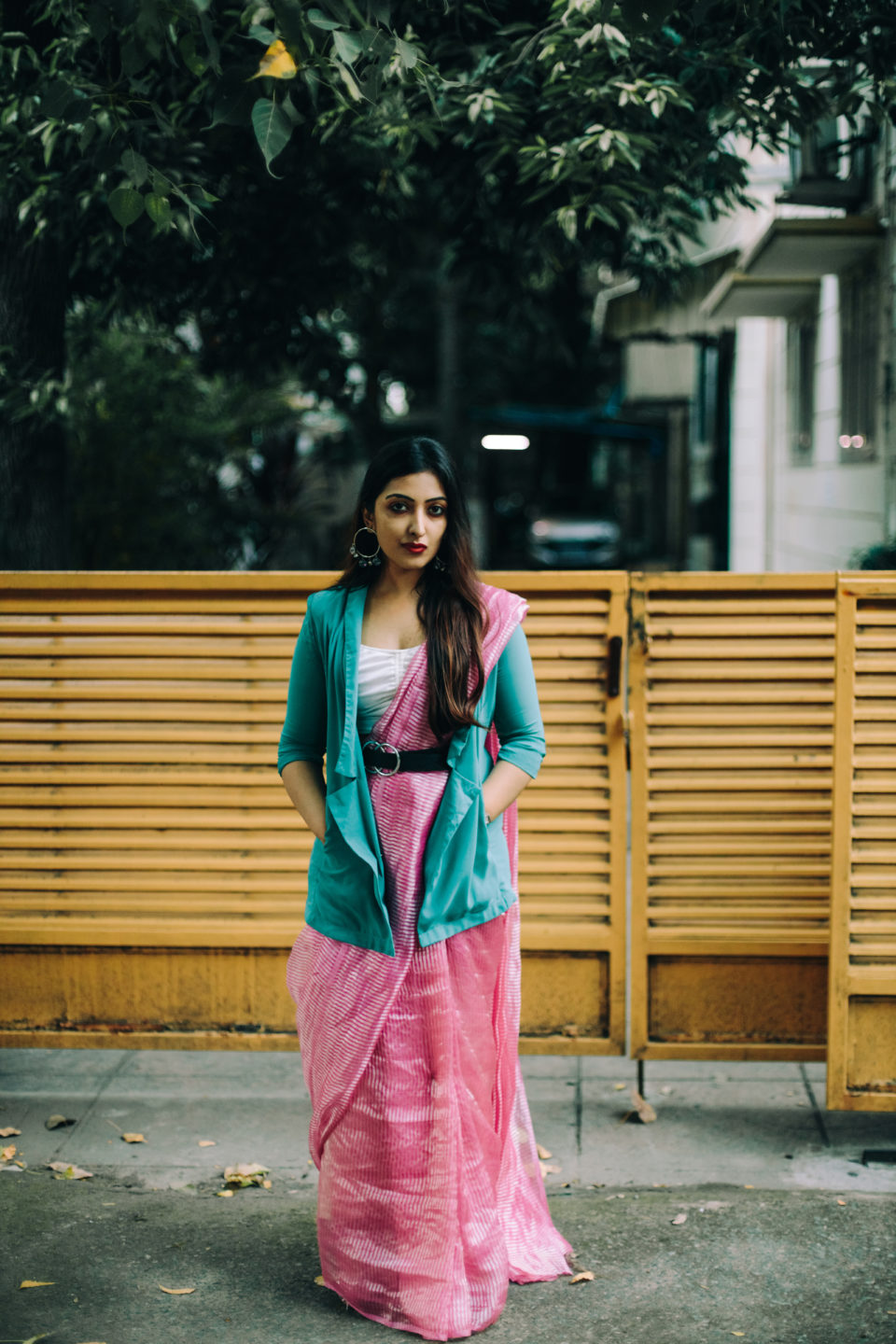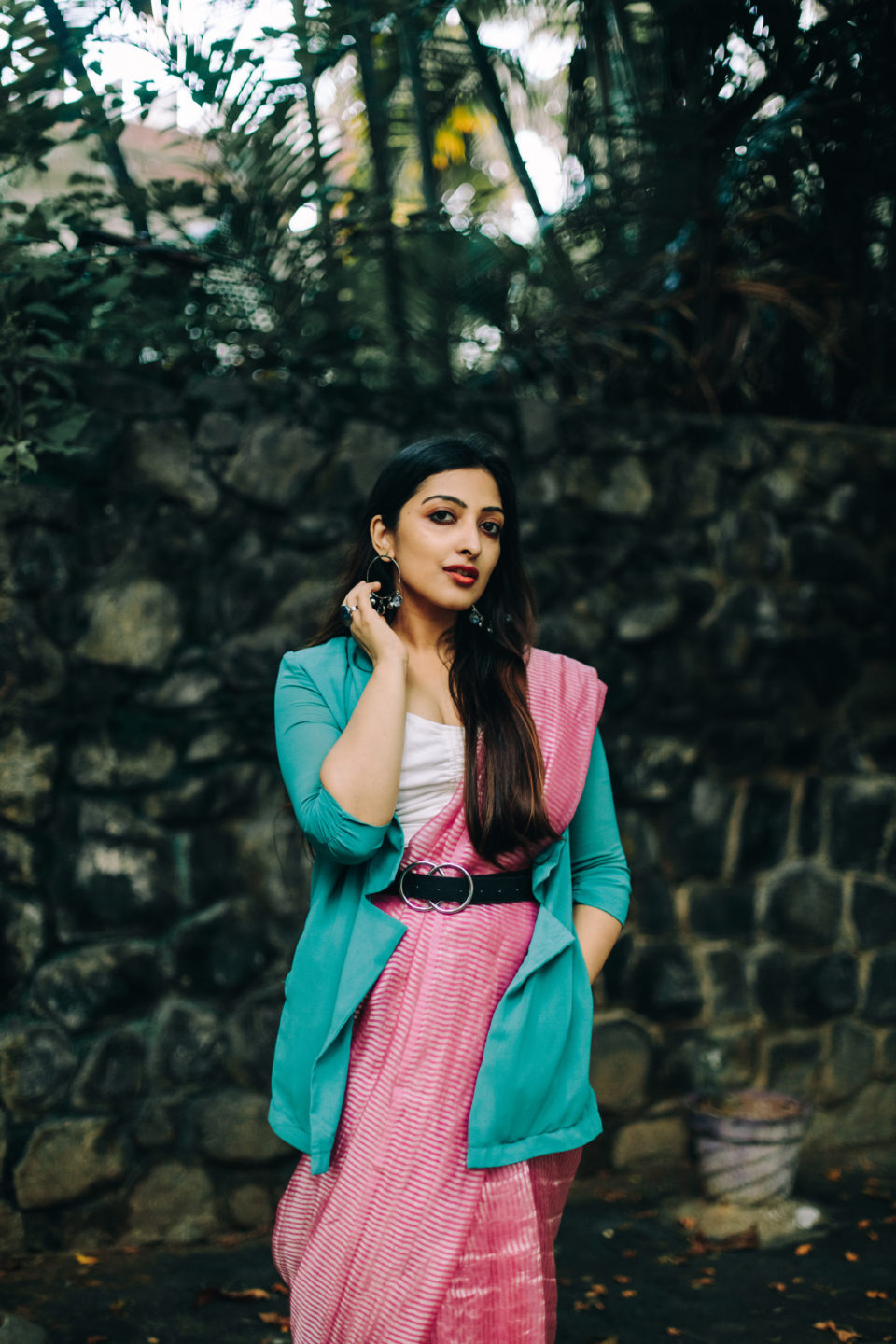Sharanya Srinivas: ‘Being Unique as An Artist Is Very Important’
The Tamil playback singer is part of Rolling Stone India and TuneCore India’s editorial campaign, Emerge
Earlier this year, it was announced that Tamil playback singer Sharanya Srinivas – along with Malayali musician and singer Arya Dhayal, Andhra Pradesh’s Damini Bhatla and Kannada rapper Gubbi – were shortlisted as part of Rolling Stone India and TuneCore India’s second edition of the editorial campaign, Emerge. The latest season of the initiative gives the audience a peek into the creative processes of independent artistic voices hailing from various regions in southern India, their inspiration and more.
In this interview with Rolling Stone India, Srinivas talks to us about her early years, standout moments in her career, being part of Emerge and more.
Give us a sense of your early years and how you got into music as well as some of your inspirations while growing up. Of course, coming from a musical household must have played a part.
So, I think that while growing up, music has definitely been an integral part of my life. My father [Srinivasan Doraiswam] is a musician. He’s a renowned playback singer down south. During his formative years, I was one or two years old when he just started playback singing. So, he used to be very, very excited, bringing cassettes home of whatever tracks he’d sung. Then he used to play them at home and my mom used to really encourage him. I have very vivid memories of my dad being very excited about just kickstarting his career. He used to be a chemical engineer, and he quit his job and then got full‑time into music. So the inspiration definitely started from there, from my dad. He’s been a huge inspiration in my life, not just in terms of music, but personally, too, he’s my hero.
While growing up, whenever I listened to a song, I would want to analyze it. I wanted to take up music professionally only when I was in college. So that’s when I got really inspired because I used to take part in all college competitions. And that’s when I was like, ‘This is where I want to be.’ So, I did Carnatic music training and my grandaunt was the one who taught me. She’s no more, but she was also an inspiration in my life. I’m still learning. I’m still a student. I will always consider myself a student.
When did you begin to realize that music is what you want to do as a career?
Since childhood, I’ve always wanted to be part of music. In fact, I think there was one random wedding where I just picked up the mic and started singing. So, I mean, coming to think of it, I’m a completely different person right now, but at that age I never had fear when it came to [picking up the mic] and singing. That passion for singing has always been there since childhood. But growing up, I had different ideas in between and I was a little bit confused as to what I should do. I think that one fine day, I just went and told my dad that this is what I want to pursue, but he just told me one thing, ‘Are you ready for the battle?’ It’s not going to be so easy; you have to practice every day. So, initially I was not taking it very seriously, and as the years went by, I understood how difficult it was to do. So whether it is to walk on to a stage in front of 1,000 people and sing a song, or whether it is delivering your best in a recording studio, both are entirely different ball games altogether.

What are some of the standout moments for you as an artist so far?
There have been several moments like that. I think the biggest moments have been actually learning something from other artists who I really admire. Going and meeting them, or probably even sharing the stage with them, has taught me a lot. I did five to six shows with the legendary [playback singer] S.P. Balasubrahmanyam sir. [It was] truly an amazing experience because he was such a magnanimous person, and he was so humble. He would sing exactly the way he sounds on a cassette or CD, and just looking at him I was able to learn so much. One more moment I can mention is meeting A.R. Rahman sir and recording for him. That was such an exhilarating experience. I was in a meditative zone, and I still have goosebumps when I talk about recording for him, so I’m eternally grateful for all these moments.
How would you describe your creative process as an artist?
My creative process as an artist is something that I have been working on for quite some time. So, if you asked me whether everyone has that creativity in them, I would say yes, but it also takes a lot of effort to build on that as opposed to just creativity naturally flowing inside. It is a process. So, for me, I want to make sure I am in the right mental space, too. And of course, the physical space also has to look nice. So, I kind of arrange that space so that it doesn’t look too cluttered. And I also make sure there are some scented candles around, and nice lighting and all that. So that really gets me into that creative zone, or whenever I’m in front of the mic and trying to sing. I think the inspiration for creativity can come from anywhere. I usually tend to listen to a lot of genres. At some point, something might seep into you and you might be able to deliver it in your own style. That is very important. Being unique is very, very important. And I’m trying to build that as opposed to blindly emulating somebody else. Of course, I draw inspiration from so many people, but having your own identity is something that is very important and that’s what I’m working on. And of course, the creative process also happens when I step in for a recording and they expect something out of you, and you deliver it in your own style and give them your best. So, that is one place where I would let go and not care about anything else in the world.

How would you summarize the current Tamil music industry at the moment? Do you think there are more opportunities than before for young up-and-coming artists?
There are absolutely a lot of opportunities for up-and-coming artists. The reason I say that is because of the sheer number of talents that we’ve been seeing. Whether it is from Instagram itself, you just see so many people singing so beautifully. We actually have more opportunities to become our own brands. I think that earlier it was more difficult. There was probably just one channel or one place to go to, to become a singer. You had to sing a song that became a hit, and then you became popular. But now it’s not like that – you can become popular or you can definitely show your artistic skills by probably just recording a video on Instagram or one on YouTube, and people definitely do take notice of all that. Of course, the Tamil industry has been very encouraging to a lot of new talents, because you see musicians collaborate on just one song. It’s become healthy competition. Everyone is doing live gigs. Everyone is doing recordings, and everyone has a YouTube page. So, it’s an amazing time to actually be an artist and push your skills forward.
What are the current projects you are involved in?
A lot of interesting projects are happening – of course, playback for a few films that I’ve been involved in. But there’s one thing I’m super proud of: that I’ve been part of this band called Carnatic 2.0. They really pushed me to see another side of music that I haven’t really explored. I was a horse with blinkers, and I was not seeing anything else. Now being part of the band, I’ve really been working on experimenting with a different side. Of course, live gigs are something that I’m passionate about doing.
How does it feel to be a part of Emerge?
Honestly, it’s such an honor to be part of Emerge because there are so many artists that I look up to and I’m so happy that I’ve been chosen to be part of this campaign. Also, all the other artists who are part of Emerge, I also look up to them and their work. So, it’s really such an honor to be part of it. And I can’t be more thankful.








